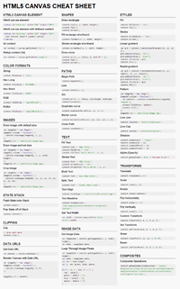The Future of Web Design: How Coding and Webflow Are Revolutionizing Digital Agencies
Description
In the ever-evolving world of web design, the emergence of tools like Webflow and the ever-growing importance of coding have marked a new era for digital agencies. The synergy of these two elements is not just reshaping how websites are built but is also redefining the very nature of web design. In this comprehensive exploration, we delve into how coding and Webflow are revolutionizing the landscape of digital agencies.
The Shift in Web Design Paradigm
Traditionally, web design has been a domain where creativity and coding coexisted but often in separate silos. Designers envisioned and created, while developers coded. This separation often led to a gap between design intent and technical execution. However, with advanced tools like Webflow, this gap is narrowing. Webflow bridges the divide by allowing designers to implement their vision directly into a functioning website without needing extensive coding knowledge.Webflow: Empowering Designers
Webflow has emerged as a game-changer for web designers. It's a visual development platform that combines the design flexibility of traditional graphic design tools with the power of HTML, CSS, and JavaScript. What sets Webflow apart is its ability to translate visual designs directly into clean, semantic code. Designers can now build complex, responsive layouts visually, while Webflow generates the underlying code. This empowers designers to bring their ideas to life without the bottleneck of coding or dependency on developers for implementation.The Continuing Relevance of Coding
Despite the advancements in visual development tools, coding remains a vital skill in the web design ecosystem. Understanding the fundamentals of HTML, CSS, and JavaScript enables designers to push the boundaries of what's possible in Webflow. It also helps in customizing and extending functionalities beyond the standard offerings of the platform. For a webflow design agency, having team members skilled in coding means the ability to offer more tailored solutions to clients, aligning with specific needs and preferences.The continuing relevance of coding in the era of advanced web design tools like Webflow cannot be overstated. Even as visual development platforms become more sophisticated, the foundational role of coding in web design remains a critical component for several reasons:
Customization and Flexibility: While tools like Webflow offer extensive built-in functionalities, coding skills enable designers and developers to customize and extend these capabilities. Knowledge of HTML, CSS, and JavaScript allows for the creation of unique features and interactions that might not be possible through standard visual development interfaces. This customization can be crucial for meeting specific client needs or achieving unique design visions.
Understanding Underlying Mechanics: A solid grasp of coding principles helps designers and developers understand the mechanics behind the web development process. This understanding is essential for troubleshooting, optimizing website performance, and ensuring the robustness of the web solutions delivered. It allows professionals to tweak the code generated by tools like Webflow for better efficiency and to adhere to best practices in web development.
Collaboration and Communication: In a digital agency setting, teams often comprise individuals with varying skill sets, including those who code. A basic understanding of coding facilitates better communication and collaboration among team members. It enables designers to more effectively convey their ideas to developers and vice versa, ensuring a cohesive approach to project development.
Keeping Up with Industry Standards: The web development industry is dynamic, with new standards, practices, and technologies emerging regularly. Coding knowledge ensures that professionals can adapt to these changes, integrating new technologies and approaches into their workflow.
Enhancing Problem-Solving Skills: Coding inherently involves a significant amount of problem-solving. Learning to code sharpens analytical thinking and problem-solving abilities, skills that are valuable in any aspect of web development and design.
SEO and Accessibility: Understanding code is crucial for optimizing websites for search engines (SEO) and making them accessible to all users, including those with disabilities. Proper coding ensures that websites are readable and understandable by search engine algorithms and accessible technologies like screen readers.
Scalability and Maintenance: Websites that are well-coded from the outset are easier to scale and maintain. As businesses grow and their needs evolve, a website with a solid coding foundation can be updated and expanded more efficiently and cost-effectively.
Career Versatility and Advancement: For professionals in digital agencies, coding skills open up more career opportunities. They provide an edge in a competitive job market, offering a wider range of roles and the potential for career advancement within the industry.
Enhanced Collaboration and Efficiency
One of the significant impacts of tools like Webflow in digital agencies is the enhancement of collaboration between designers and developers. Webflow’s shared platform allows for real-time collaboration, ensuring that both design and development teams are on the same page. This synergy not only improves workflow efficiency but also ensures a higher quality of the final product. The time saved in translating design into code can now be utilized for refining user experience and creative exploration.
Responsive Design and Accessibility
With the increasing importance of mobile browsing, responsive design has become non-negotiable. Webflow automatically handles the responsive behavior of websites, allowing designers to create websites that work seamlessly across all devices. Furthermore, Webflow’s focus on semantic HTML and clean code generation aids in creating websites that are more accessible, catering to a broader audience, including those with disabilities.The Impact on Client Relationships
For clients of digital agencies, the rise of platforms like Webflow translates to faster turnaround times, more creative control, and often, reduced costs. Clients can now be more involved in the design process, with the ability to see changes and iterations in real-time. This openness fosters trust and heightens client satisfaction.Educational Resources and Community Support
Webflow doesn’t just provide a platform; it also offers extensive educational resources, making it easier for designers and developers to learn and adapt to the platform. The vibrant Webflow community provides a support system, offering tips, tricks, and solutions. For digital agencies, this means continual learning and staying ahead in the game.Looking Ahead: The Future of Web Design in Digital Agencies
As we look to the future, it's clear that tools like Webflow will continue to shape the landscape of web design. They will drive a more integrated approach to web development, where design and code converge more seamlessly. We can expect to see even more intuitive interfaces, advanced functionalities, and AI-driven design elements incorporated into these platforms.Digital agencies that embrace these changes and adapt to the evolving tools will find themselves at a competitive advantage. They will be able to offer more innovative, efficient, and responsive web solutions to their clients.
 Blog
Design
Development
Mobile
Inspiration
CSS
Javascript
News
Opinions
Politics
Menu
Blog
Design
Development
Mobile
Inspiration
CSS
Javascript
News
Opinions
Politics
Menu
